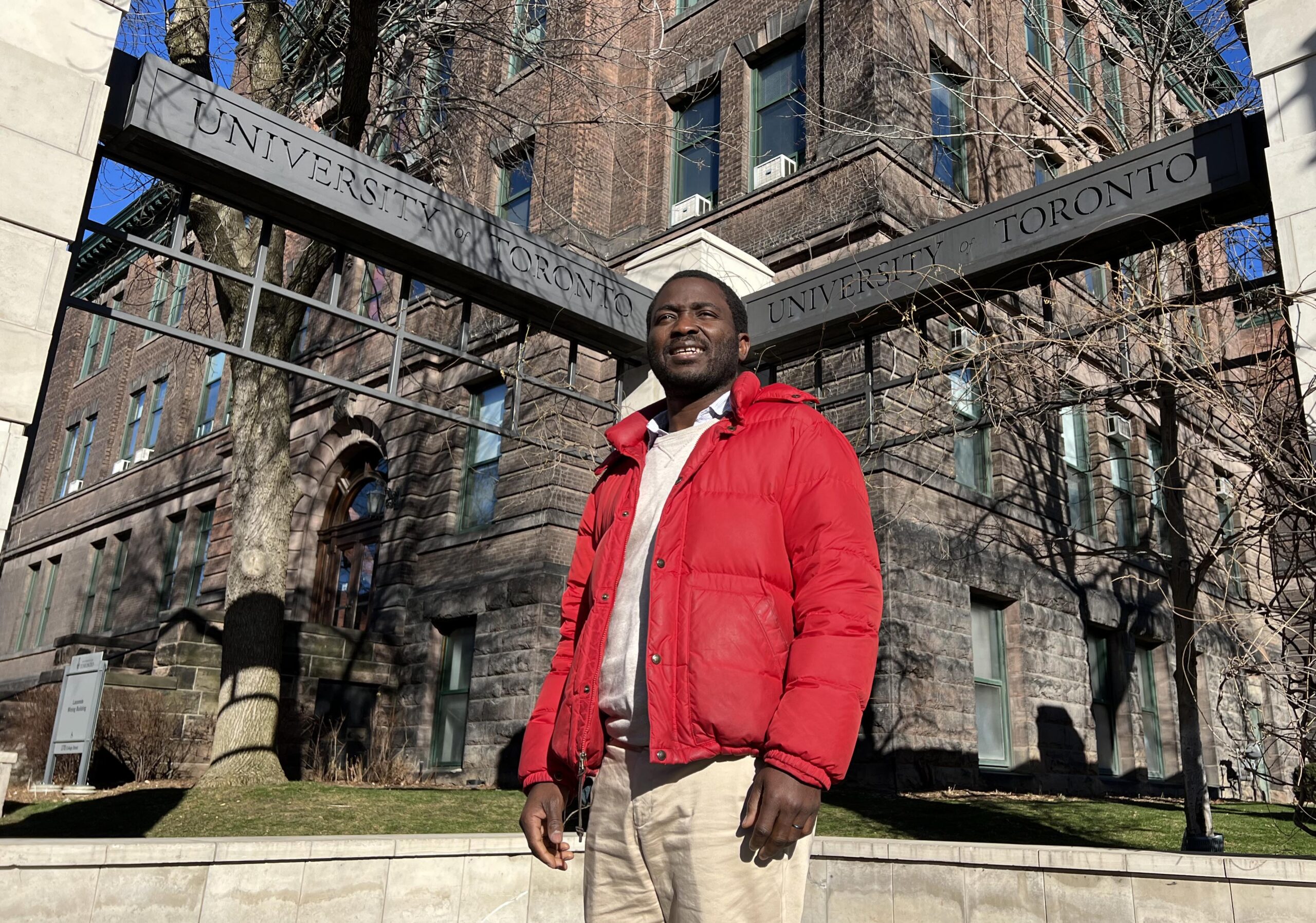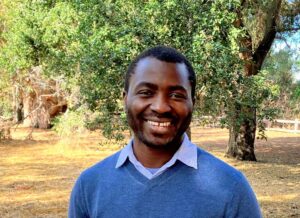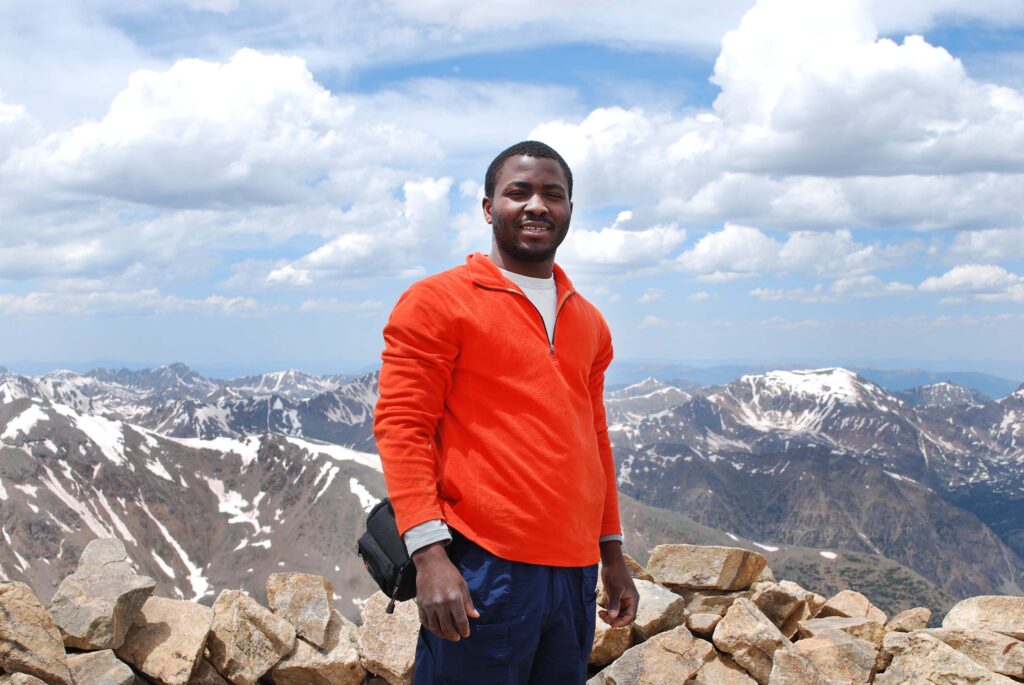
Professor Hamed Ibrahim joins the Department of Civil & Mineral Engineering as an Assistant Professor as of January 1, 2024.
CivMin spoke with Professor Ibrahim to learn more about his research direction, passion for teaching and what attracted him to Toronto. He has relocated from the U.S. to join our Department.
“We wholeheartedly welcome our newest faculty member to the Department,” says CivMin Chair Marianne Hatzopoulou offering her greetings. “Students will benefit from the exciting new elements Professor Ibrahim brings to the Department in teaching and research. Join us in offering our newest professor a warm welcome to CivMin.”
Q: Can you tell us a little about yourself as an introduction.

I was born in Lagos, Nigeria and spent my teenage years in the north central city of Lokoja, the confluence city where the Niger River meets its largest tributary, the Benue River. So, I have long had an interest in water and hydrology. After completing my secondary school studies in Ibadan, Nigeria, I moved to the U.S. where I completed my undergraduate and graduate studies and postdoctoral work.
Q: Could you explain the focus of your research?
My research is focused on understanding mechanisms of the hydrological cycle. I classify the temporal and geographical fluctuations of water and heat in this cycle in order to provide a scientific basis for regional water management and for adaptive design of built infrastructure in a changing climate.
Q: Why did you choose U of T?
I chose U of T for a few reasons: first, I have many family members who reside in Ontario and the northeast of the U.S., and proximity to them is important for me; second, Toronto is one of the most multicultural cities in the world and I am grateful to have the opportunity to add to, and learn from, the city’s diverse communities; third, U of T is a world-class institution where I can do groundbreaking and impactful work that will improve the world’s water condition.
Q: What are you most looking forward to in your new position?
I am looking forward to forming new partnerships and learning from students. The university is a fantastic place for exchanging and cross-pollinating ideas. Several of the threads in my career so far have resulted from chance encounters with people and ideas I followed up on. I am excited about this new opportunity.

Q: As a new professor, what one piece of advice would you give to new students?
For most students, the period spent in the university is relatively short compared to their whole career. So, my one piece of advice is to embrace and take advantage of the brief opportunity to learn as much as possible while you are a student, which is a bit easier to do since the university has organized the different knowledge spheres: this organizing takes time to do after one leaves the university.
Q: What do you hope to accomplish in your new position/during your time at U of T Engineering?
I hope to tackle and find solutions to some of the world’s urgent water problems. Civilization primarily depends on exploiting water resources and avoiding water hazards. But these are challenging times regarding water resources: infrastructure is aging in many population centres, as is evident from recent dam failures and inadequate water supply, the global population is rising, cities are getting larger, and the global climate is changing with unknown consequences on regional water resources. My goal is to find adaptive solutions to urgent regional water problems and train the engineers and scientists who will continue this work in the coming century.
Q: What is the most memorable experience in your career so far?
Early in my PhD work, I developed a strategy to manage River Blindness, a vector-borne disease transmitted by blackflies. These flies like to breed in fast-flowing rivers and streams because their larvae feed by sifting moving water for food. I designed a micro-hydropower system to control blackfly population by diverting water, which decreases river flow velocity, to generate small amounts of electricity.
To show proof of this concept, I carried out a three-month research expedition to endemic remote farming villages in Tanzania in order to identify a suitable location to implement this control strategy. On each visit to a farming village, using a town hall meeting approach, I explained the purpose of my visit and the disease mechanism. I also described simple steps to reduce infection risk, such as wearing long sleeves and trousers and avoiding travel at sunset and sunrise when blackflies are more active.
After one such meeting, an individual walked up to thank me for visiting and for describing the disease mechanism, which will enable him to avoid blackfly bites and infection with the disease parasite. This was a significant moment in my own growth as an engineer and scientist. Until that moment I thought the micro-hydropower strategy was the only solution I could offer. I realized only then that the actionable information about the disease I provided to these communities is, in fact, a disease control strategy itself.
Q: Finally, is there anything fun/unusual/unexpected about yourself you’d like to share with our CivMin audience?
I like mountaineering and wilderness trekking in general. I have summited more than fifty of the tallest peaks in the conterminous U.S., so I am excited about the possibilities of exploring the Canadian outdoors.
~ CivMin